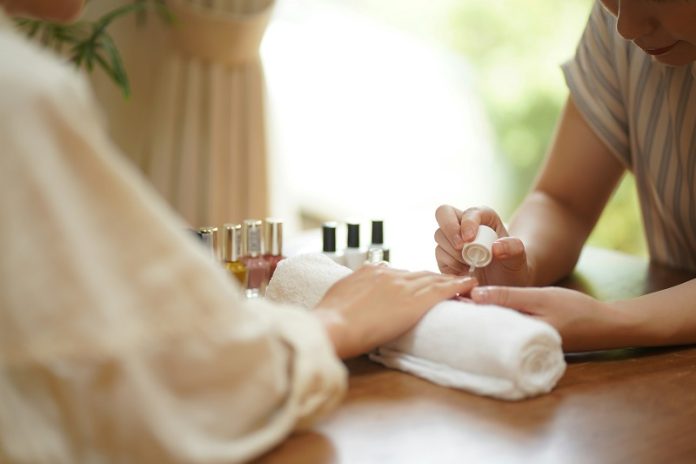
That distinctive nail salon smell—sharp, sweet, and a bit tingly in your nose—is actually air pollution.
This air pollution can cause various health problems for the workers who spend their days in these salons.
Many nail salon workers experience irritated skin and eyes, headaches, loss of smell, and respiratory issues.
In response, some cities and states, like Washington, have introduced new regulations to protect nail salon workers.
These workers are often women, foreign-born, and earn low wages, making it important to ensure their safety.
However, protecting them is challenging because cosmetics manufacturers are not required to disclose the specific chemicals used in their products.
Diana Ceballos, an assistant professor of environmental and occupational health sciences at the University of Washington, is working to uncover the mystery behind these chemicals.
In a recent study, Ceballos and her team analyzed the air in several nail salons around Boston.
They identified 18 distinct fragrance chemicals, making it the most comprehensive study of its kind. This research will help scientists further study the potential health risks of these chemicals.
Fragrances are added to nail salon products to create pleasant smells or to mask unpleasant odors.
However, many of these fragrances can cause health issues, such as skin irritation and asthma.
Some fragrances can trigger asthma attacks or even cause asthma and other respiratory problems. These chemicals can affect the entire immune system, not just the skin.
While some fragrances can have positive effects, like creating a relaxing atmosphere, many are not well-studied and could be toxic. For a long time, fragrances were considered trade secrets, so specific chemicals were not listed on product labels.
Recent regulations in Europe and some US states are beginning to change this, but there is still a lot of work to be done to disclose all ingredients.
Ceballos’ research suggests that not only nail products contribute to the fragrance chemicals in salons, but also personal care products and cleaning agents used in these spaces.
This means that the air quality in nail salons can be quite poor, affecting both workers and customers. People sensitive to odors may experience headaches, dizziness, and nausea, making it difficult for them to visit nail salons.
For workers, who often spend long hours in these environments, the impact is even more significant. Many nail salon workers report headaches, irritation, and other symptoms related to the chemicals in the air. This can greatly affect their well-being and quality of life.
Improving indoor air quality in nail salons is crucial, as the chemicals eventually make their way outside and contribute to overall air pollution. Policies that require businesses to filter out chemicals before they are released into the air can help. While there is still much to learn about fragrances, ongoing research and regulations can lead to better protection for nail salon workers and the environment.
Understanding and controlling the chemicals in nail salon air is a step towards healthier workplaces and a cleaner environment for everyone.
If you care about wellness, please read studies about how ultra-processed foods and red meat influence your longevity, and why seafood may boost healthy aging.
For more health information, please see recent studies about the power of pickle juice ,and time-restricted eating: a simple way to fight aging and cancer.



